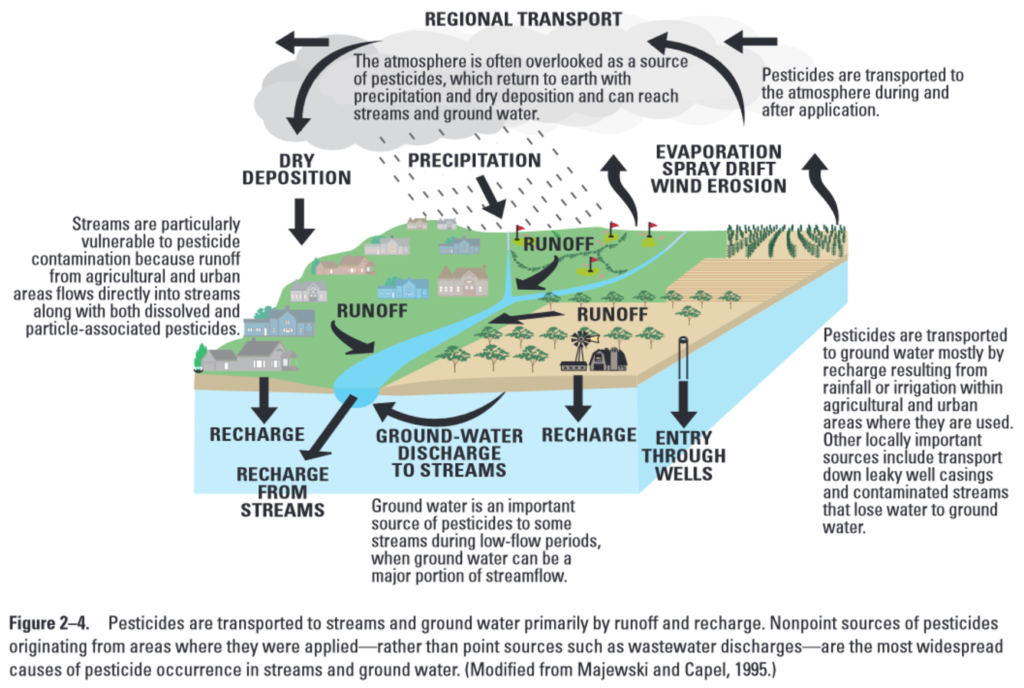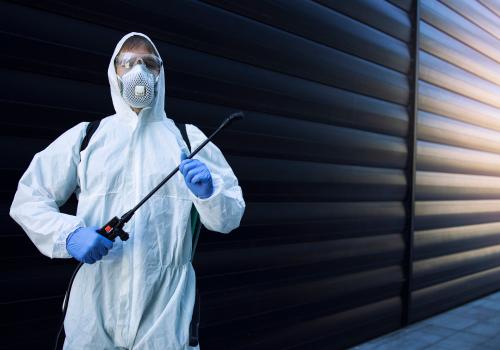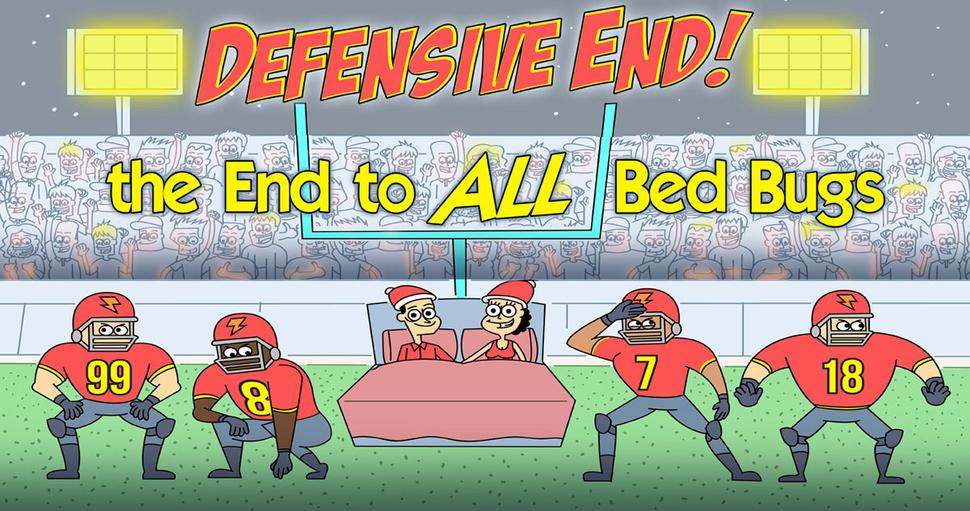With the massive industrialization of the Earth in the past few centuries, humanity has benefited massively from organized farming and associated pest control methods.
Dangers of Pesticides: Lives Changed Forever
The truth is, you have to be careful when traveling to other countries, especially ones that are known only for affordable, all-inclusive tourism. That’s what one Delaware family found out the hard way, unfortunately.
The Esmond family stayed in a condo above a unit where a Terminix exterminator improperly applied an illegal pesticide, leaving several of the family paralyzed and without sensation in their limbs. Additionally, doctors said that they would not see any significant improvement in their health after pesticide poisoning.
Getting rid of bug and insect pests should not leave people in a wheelchair for the rest of their lives.
Pesticide Runoff Into Drinking Water
Where does a pesticide end up after it’s used?
One of the reasons some of your local rivers, creeks, streams, and ponds may have a strange hue is due to pesticide runoff, in addition to sewage leaks in the water system. These occurrences are not uncommon, unfortunately, even in a country like the US.

The EPA states “The most effective way to reduce risks posed by pesticides is to use non-chemical control methods to reduce or eliminate pest problems.”
Pesticides have been linked to a wide range of diseases like Alzheimer’s Disease, Cancer, ADHD, and various neurological disorders in children.
Additional Resources for Safe Use of Pesticides
It is important to be careful when using any type of insect pesticide. Always read the label carefully and follow the instructions for us
Chemicals in Insecticides to Be Careful With at Home Around Kids and Pets
The EPA provides this checklist on preventing the mishandling of pesticides.
- Insecticides containing organophosphates are a class of pesticides that are highly toxic to insects and can also be harmful to humans and other animals. Organophosphates work by inhibiting the action of an enzyme called acetylcholinesterase, which is essential for the transmission of nerve impulses. Symptoms of organophosphate poisoning can include nausea, vomiting, diarrhea, headache, dizziness, muscle weakness, and seizures. In severe cases, organophosphate poisoning can be fatal.
- Insecticides containing carbamates are another class of pesticides that are highly toxic to insects and can also be harmful to humans and other animals. Carbamates work by a similar mechanism to organophosphates, inhibiting the action of acetylcholinesterase. Symptoms of carbamate poisoning can be similar to those of organophosphate poisoning, but are usually less severe.
- Insecticides containing pyrethroids are a class of pesticides that are less toxic to humans and other animals than organophosphates or carbamates. Pyrethroids work by disrupting the electrical activity of insects’ nerves, causing them to become paralyzed and die. Symptoms of pyrethroid poisoning in humans are usually mild and include skin irritation, headache, and nausea.
- Insecticides containing neonicotinoids are a relatively new class of pesticides that are highly effective against a wide range of insects. Neonicotinoids work by disrupting the nervous system of insects, causing them to become lethargic and die. Neonicotinoids are also absorbed by plants and can be toxic to bees and other pollinators.
Keep pesticides out of the reach of children and pets. If you are concerned about the safety of using pesticides, you should contact your local extension office or a pest control professional.
Additional Tips for Using Insecticides and Pesticides Safely
Insecticides are a very important part of agriculture and indoor living, let’s just call it. Anyone who’s been eaten alive when camping by mosquitoes, horse flies, or no-seeums, even when using a tent, can attest to the discomfort and agony that biting insects and bugs can cause, and what effect that has on your sleep and overall well-being.

Bed bugs seem like a big problem, bu we believe you can take care of your own bedbug problem safely yourself, just like we have.
- Put on protective clothing to protect your skin and hair, including gloves, goggles, and a long-sleeved shirt and pants.
- Seek out natural pesticide alternatives that use natural ingredients, like DE!.
- Only use pesticides in a well-ventilated area.
- Avoid spraying pesticides near food or water sources.
- Dispose of empty pesticide containers properly.
If you accidentally come into contact with an insect pesticide, wash the affected area with soap and water immediately. If you experience any symptoms of poisoning, seek medical attention immediately.
Get the #1 Complete, Safe Bed Bug Solution


